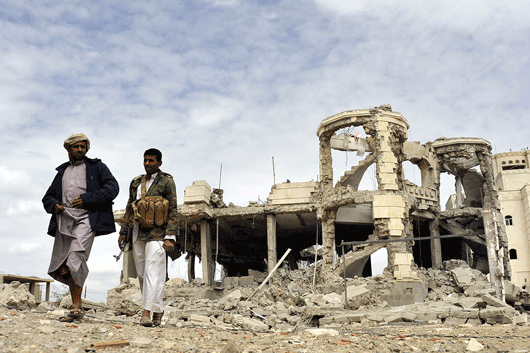
Even sources like the New York Times are starting to take notice that this is not an anti-rebel campaign but a war designed to systematically obliterate Yemen’s already poor economy.
As much attention as blowing up a hospital gets, in many cases the more harmful strikes target places like food processors and basic industries, exacerbating chronic food shortages in the nation and insuring that any post-war reconstruction will be arduously slow.
Whether it’s a potato chip factory or a poultry farm, anything large enough to be visible is a target, and many of the owners say they believe that they were targeted simply because they remained in business during the invasion, and that the Saudis see everything that’s operating as a war target.
UN humanitarian coordinator Jamie McGoldrick says the attacks are obviously deliberate, and that the "economic dimension" of the war is meant to put pressure on Ansarullah. The Saudis deny this, however, insisting that the Houthis are to blame for all the Coca Cola bottling plants that Saudi warplanes bombed.
Either way, Yemen has gone from the poorest nation in the Middle East to an unrivaled global pauper, and while a lot of the resentment is aimed at Saudi Arabia, many see the Obama Administration’s support for the Saudi war as a key factor.
And while historically Saudi Arabia has had the lobbying clout to be untouchable in the US Congress, recent votes aimed at blocking US arms sales to Saudi Arabia have been getting a surprising amount of support. It’s still not enough to block the sales, not yet anyways, but the trend is clearly going against the Saudis.
Before the war, Yemen imported some 90% of its food, and a naval blockade by the Saudis has severely limited the availability of food.
Source: News Agencies, Edited by Website Team